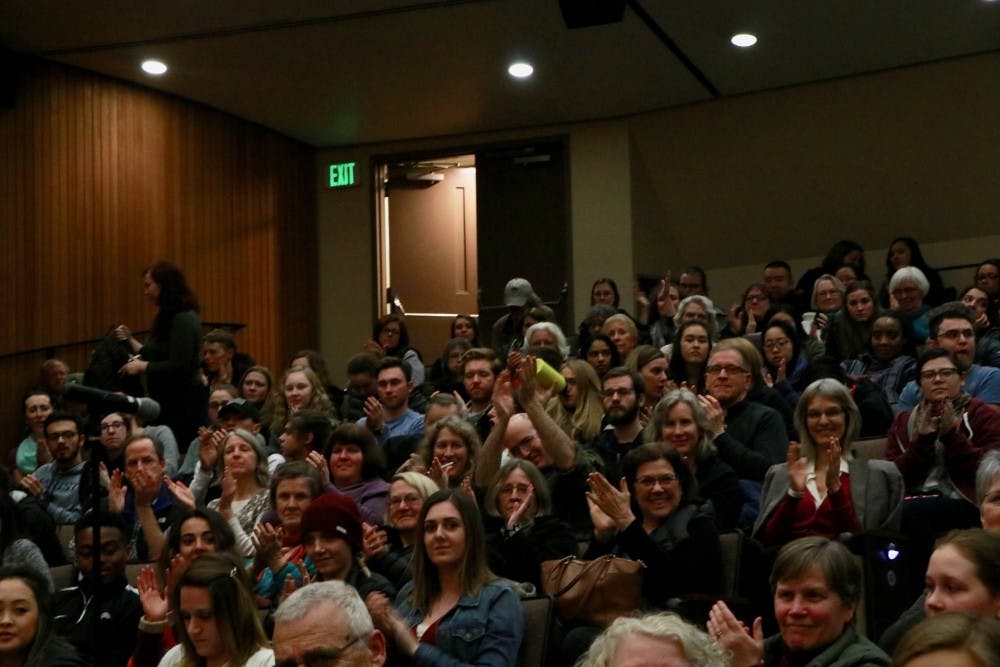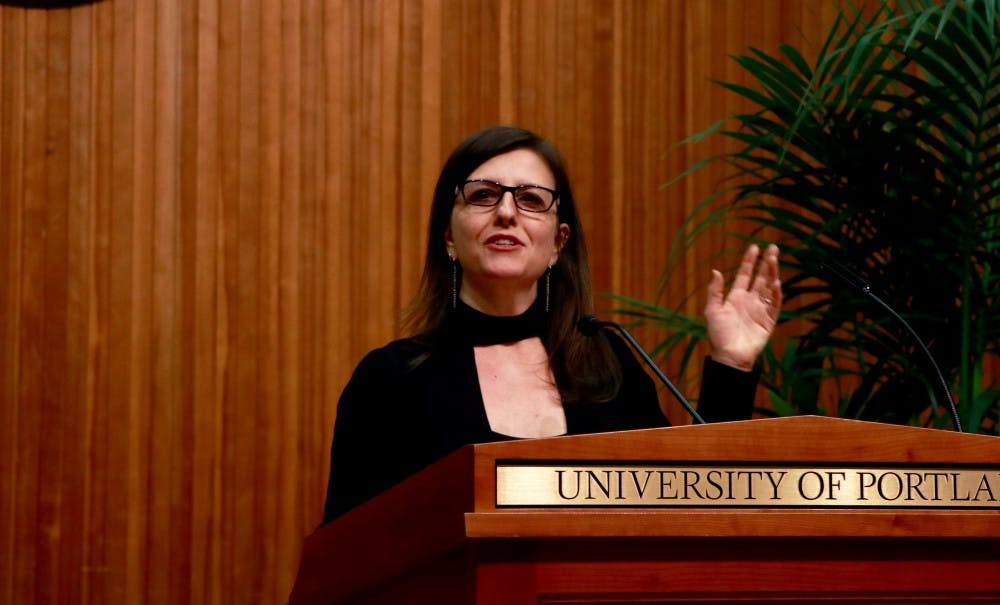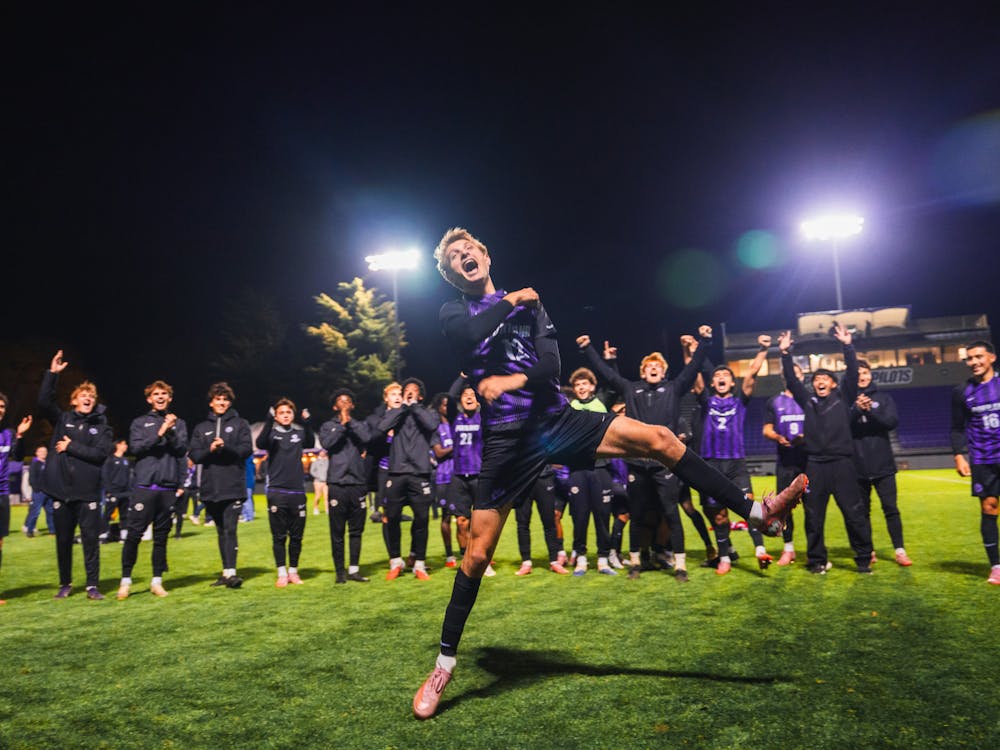When she was barely 30 years old, her cells were taken from a cancerous tumor inside her cervix. Johns Hopkins scientists then proceeded to conduct research on these cells because of their immortal life, meaning they would double in amount every 24 hours without dying. These cells led to the development of the polio vaccine and in virto fertilization, and were the first human cells launched into space to study the effects. They became known as HeLa cells.
All of this was done without the consent of the patient, Henrietta Lacks.
In the late 90s, Rebecca Skloot, a scientific journalist who attended Portland Community College, became fascinated with the cells. Finding herself researching the origin of the cells, she began pursuing the family of Henrietta Lacks. After more than 10 years of research, she wrote the Immortal Life of Henrietta Lacks and was published in 2010. On Monday night at 7:30 p.m., Skloot spoke about her life and journey with this story to a room of students, faculty and staff in Buckley Auditorium for Diversity Dialogues.
The book was on more than 60 critics’ best books of the year lists, and has continued to make an impact on the ethical issues within scientific research, as well as the disparities within the current healthcare system.
On Feb. 28, the screening of The Immortal Life of Henrietta Lacks will be shown in Buckley Auditorium at 7:00 p.m.
Rebecca’s first knowledge of the cells:
“I ended up in this class because I had tried to take science at Lincoln (local high school in Portland, OR), and it hadn’t worked. So, I signed up for this class at PCC (Portland Community College) and I knew I wanted to be a veterinarian, and this was a medically focused biology class, which is why I was there.
And the teacher said what all biology teachers say, ‘At some point there are these amazing cells.’ He talked about the cells and what they had done. He wrote ‘Henrietta Lacks’ on the board in big letters. And then he turned around and said, ‘She was a black women,’ and that was it. And class was over and I was like, “What? Why is that all we know about her?’
I went up to him and was like, ‘Who was she? Did she have any kids? And what do they know about these things and what do they think?’ And he was like, ‘Sorry that’s all we know about her. Nobody knows anything. If you’re curious, go do a little research and see if you can find anything, write up a thing, and I’ll give you some extra credit.
That was in 1988.”
Asking the tough questions:
“I was working in a morgue at the vet school… This was where the end result of where all the teaching and research that was happening in the hospital ended up. Where people’s pet died in the hospital… I was seeing all these animals every day who were just being killed to teach vet students anatomy.
They didn’t need to do that. There were virtual reality programs that we could use instead of live animals for some of this stuff. And I was seeing the result of a lot of cancer research, and various research that was happening. Part of my job was to do deal with this freezer (morgue). And I was like, ‘Is anybody realizing how many animals we go through every day to teach vet students, and is this really necessary?
I started asking these questions, which has driven a lot of my work, which is ‘Where do you draw the line between the value of science and the cost on research subjects?”
Rebecca’s writing classes— a change in her career:
“I went to a four-year school planning to be a veterinarian. From that point on, I went through school with what people described as veterinary tunnel vision. I was convinced I would be a veterinarian and nobody could tell me anything different. I only took classes that I felt like would be relevant to being a vet.
The school I went to counted creative writing as a foreign language. The first creative writing class I took I only signed up for it to fill a foreign language requirement. So, it wasn’t like I miraculously fell in love with writing.
The second assignment in that class was to write a story about something the world forgot. I wrote a story about Henrietta Lacks, and the fact that the whole world had forgotten about her and I weirdly couldn’t. I was obsessed with her. From that point on, I took writing class after writing class as electives. All I wrote about was Henrietta Lacks.
My senior year, my writing teacher pulled me aside and had a stack of catalogs from writing programs. He sat them down on my desk and said, ‘You know you don’t have to become a veterinarian just cause that’s what you always thought you were going to do? There’s this thing called science writing that’s really important, and I think that’s kind of what you need to do.”

A graduation school theses— the inspiration of the book:
“So I went to graduate school to get an MFA (Masters of Fine Arts). When I showed up there, the first assignment I got there was to write a proposal for what was going to be my thesis… The final project was to be about 150 pages. I couldn’t imagine writing one book for one thing, it was just too hard.
So I thought, I am going to write a collection of essays about forgotten women in science. I wrote this proposal about why it’s important to remember these women, and the stories that had to be told. I figured I’d have 13 women, about ten pages each… I number my pages 1-13 and on page one, I wrote Henrietta Lacks.
Then I was like, ‘I wonder who the other 12 are going to be?’ And that’s when I called Deborah for the first time.
Meeting Deborah Lacks:
“I called her and said, ‘Hi, I want to write about your mother.’ And she initially was like, ‘No, you’re not.’ When I did get her on the phone and actually get to talk to her, this conversation sort of created this path that I ended up on… She was so excited about the idea of someone writing about her mother, but then she asked, ‘How do I know you’re really a writer? How do I know you’re not trying to come steal my cells?’ Then she hung up on me and didn’t call me for a year and a half.
She (Deborah) was the most hard-headed and determined person I ever met. And she was one of my greatest inspirations, and also one of my greatest hurdles. For those of you who read the book, you know she eventually did trust me and let me in, and then she would push me away. And then she would get scared and back and forth, and sometimes literally throw me against a wall.
I kept going back and she kept going back because we both just shared this one thing, which was this deep curiosity and obsession with this question: Who was Henrietta Lacks and why doesn’t the world know about her?”
Race and privilege:
“I went to Deborah’s world, which was a world I had no idea of. My time with her taught me so much about race in the world. And what privilege means and how I have that. And how being able to walk into places for information was a privilege that I had never understood I had.
Education is a privilege that I had fought against my whole life. It was just sort of a given. I got a good education, it was a basic education. Everyone in this room, I mean, there was never probably a question of: what is a cell?
And Deborah didn’t (know what a cell was). She didn’t have access to a basic education and grew up hard of hearing and couldn’t really read or write. She carried around a dictionary with her everywhere.”
Ethics on the cells:
“One of the things I think is important with the whole story of Henrietta and her family is that people often focus on this first moment: should scientists have taken her cells in the ‘50s without her knowledge?
In some ways, that’s the easiest moment ethically to look at. There were no laws saying that you should worry about this. It was standard practice for scientists to take cells without their (patients) knowledge.
In the ‘70s, when the scientists took samples from their kids, that wasn’t the standard practice and we did have informed consent. That was a very different time.
Compensation for medical research?:
“I actually don’t think it’s my job to tell you what to think about this. I feel like my job is to say, here is all the information you need to make an educated decision about that. That was sort of the goal for this book was, here is the question and here is a whole history that can help you answer that question.
People often ask about the compensation piece… no, the family (Lacks family) has not been compensated for the cells. As part of the book, I set up a foundation where some of the proceeds from the book and the film go to the Henrietta Lacks Foundation.
It has helped members of her family with education and healthcare. People can donate… but no institutions or biotech companies (have chosen to donate) because there is this fear of setting a precedent. ‘If we pay them for the cells, what about the millions of other people whose cells are used for research?’
They (scientists) get tied up in all these knots…”
Lacks Family Update:
“The Lacks family is now incredibly proud of the cells and all they’ve done for science. And they want the world to keep doing good, but they also want to protect the family.
They now travel and give talks. Henrietta’s grandkids, great-grandkids, and great-great grandkids are nurses, they have degrees in social work. They’re just changing the world now in ways and it’s amazing to watch. They’re consulting on consent forms and so for the first time, her family is now involved in the conversation in ways they’ve never been.”








